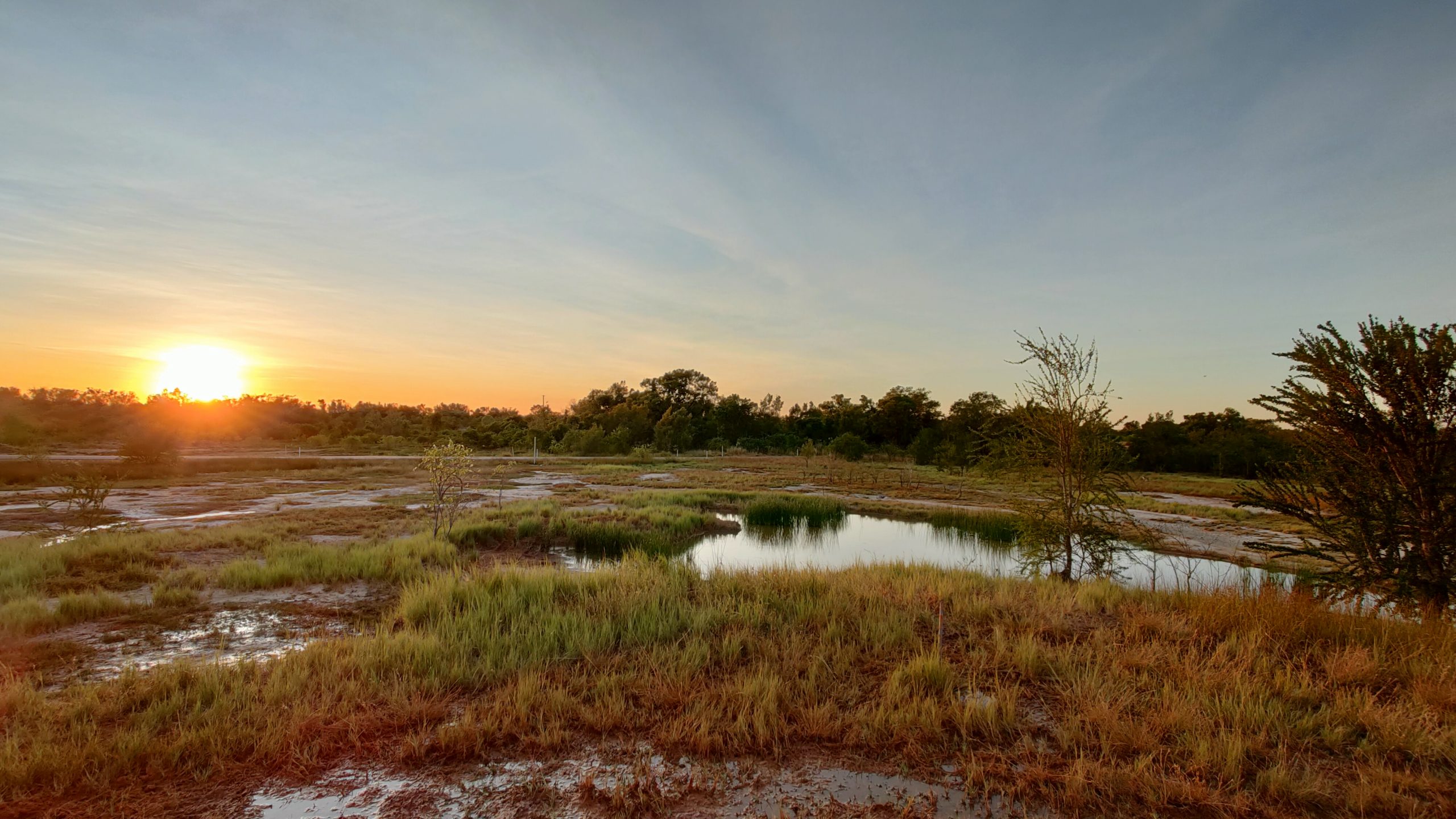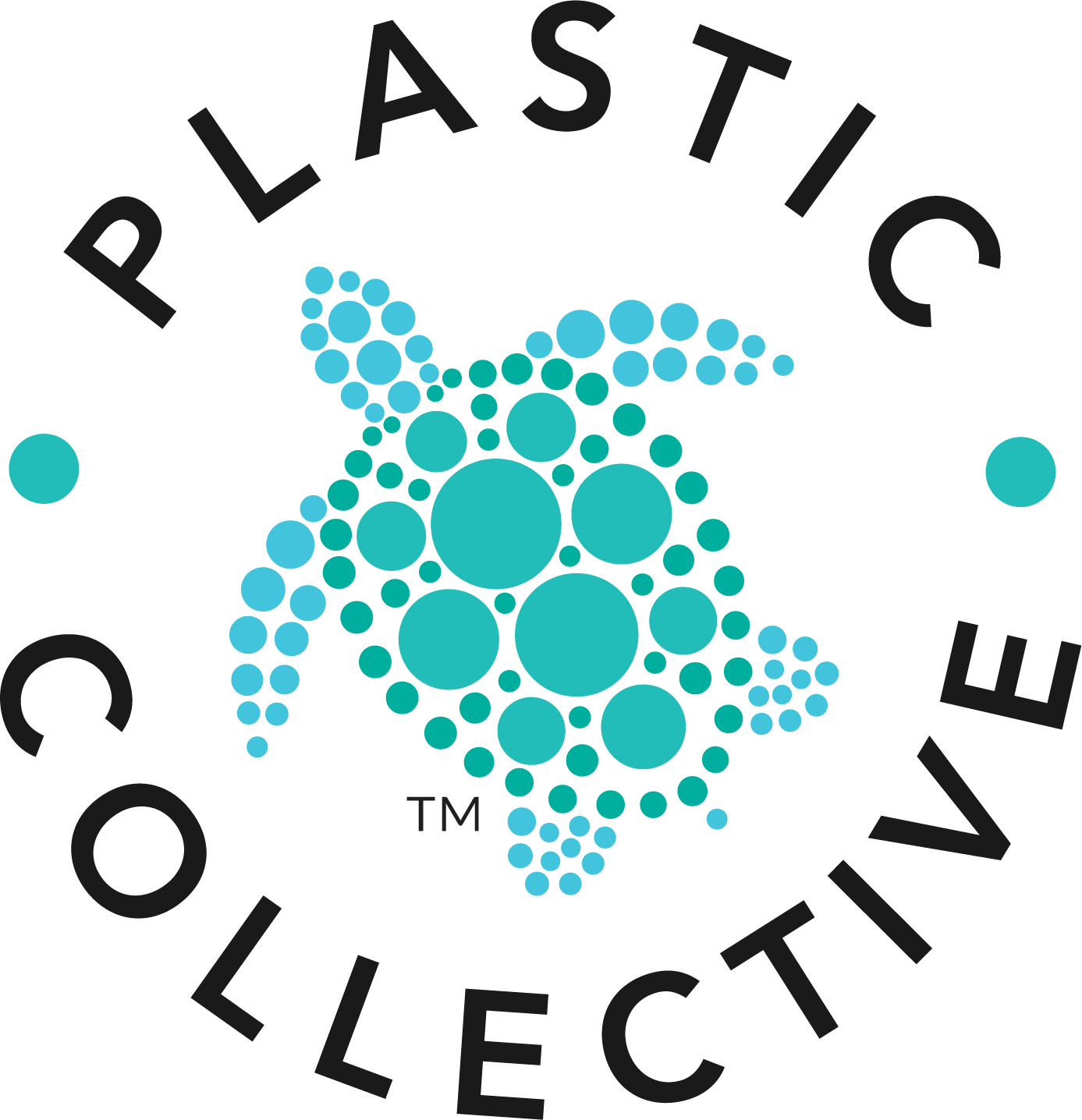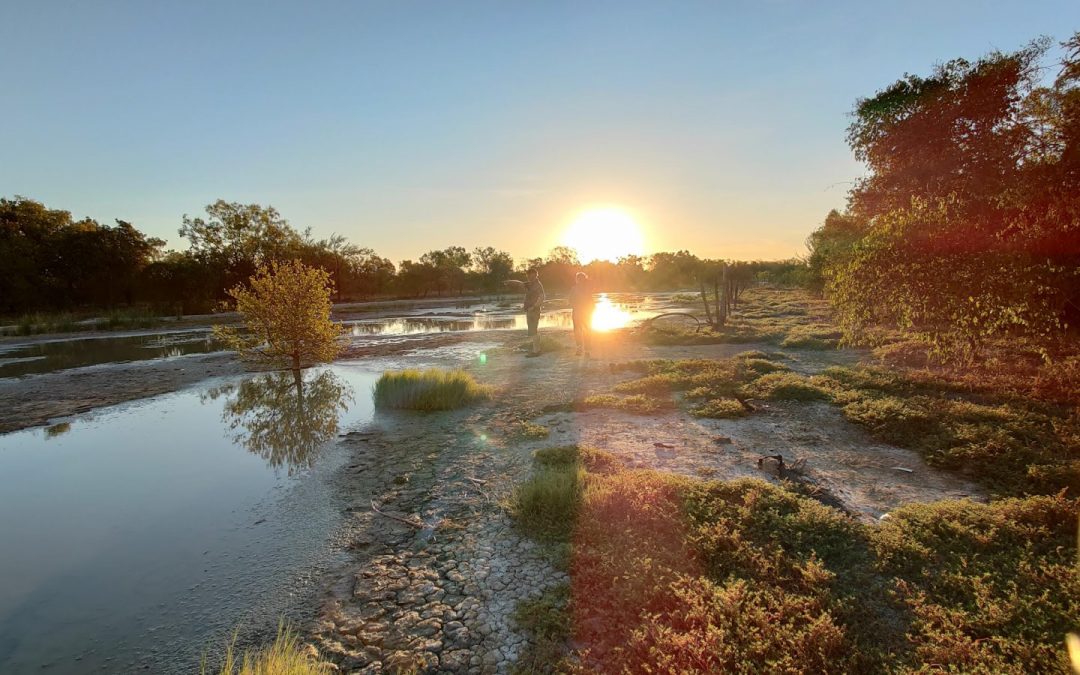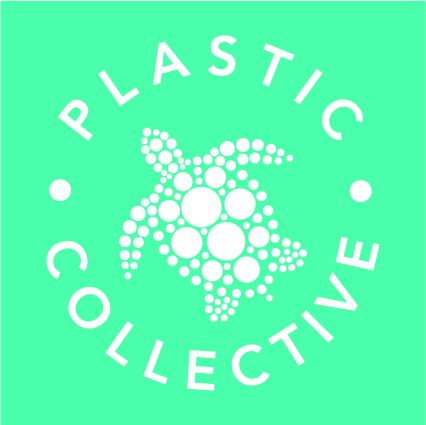Indigenous Rangers Caring for County
Wetlands Not Wastelands – Southern Gulf Kickoff
In April, 2021 Plastic Collective (PC) and Earthwatch Australia (EW) made their way to northern Queensland to meet with Carpentaria Land Council Aboriginal Corporation (CLCAC) in Normanton and Burketown, in the southern region of the Gulf of Carpentaria. Louise Hardman (founder/CEO- PC), Jock McKenzie (Senior Scientist – EW) and Fiona Sutton (acting CEO- EW) travelled to two remote townships to work with the CLCAC Gangalidda & Garawa and Normanton Rangers. Together, they conducted the first training programs in Mangrove / Saltmarsh monitoring and plastics education.
‘Wetlands, not Wastelands’ was launched through the Coca-cola (Aust) Foundation flagship environmental partnership in early 2020 to deliver a waste plastic and a wetland management program in collaboration with Aboriginal communities in the Gulf of Carpentaria; CLCAC has been in operation since 1984.
The program aims to provide training, skills and equipment to the Ranger programs to identify different threats to the Southern Gulf’s mangroves and salt marsh areas, including human-induced behaviours including marine debris and plastic pollution, and provide plastic recycling solutions for the region.
In 2007, CLCAC established a Land and Environment Ranger Program to extend its role in the native title. By 2019, the Rangers program was employing 21 full-time Indigenous Rangers in the two ranger units of Burketown and Normanton. CLCAC also provides mentorship and support to the Wellesley Islands Rangers, a team of four based on Mornington Island.
Current activities the Land and Sea Rangers undertake include;
1. Feral animal and weed control
2. Wetland rehabilitation
3. Fire management
4. Turtle and Dugong Management
5. Biodiversity and Vulnerable species monitoring
6. Visitor compliance and fisheries joint-patrols
7. Erosion management and water quality monitoring
8. Protection and Management of cultural sites; and
9. TEK transfer through school visits and the Junior Ranger Program
CLCAC’s Land and Environment Rangers carry out important work, caring for Country and Sea. They regularly check their local fishing sites, remove any litter or marine debris, and conduct feral animal and invasive weed management. Their passion for protecting and nurturing the natural environment is outstanding and a real credit to the vision of CLCAC Traditional Owners (TO’s) in both Normanton, Burketown and the Wellesley Islands.
NORMANTON & BURKETOWN DEMOGRAPHICS
The Southern Gulf of Carpentaria covers an extensive area of remote, flat and often inaccessible regions, scattered with small townships, homesteads and numerous cattle stations. The primary industries in this area are;
1. Tourism (for fishing, sightseeing, wildlife tours & cultural engagement)
2. Recreational Fishing (Barramundi, salmon, etc.)
3. Commercial Fishing (Prawn trawling, barramundi farms, shark fisheries)
4. Agriculture (Livestock – before covid there was Live export industry of cattle)
While Normanton and Karumba (Carpentaria Shire) have a registered population of 2,200 local residents (over 743 Indigenous), tourism in the dry season between May – November attracts many travellers, particularly for the fishing season. Similarly, Burketown has a small registered population of 300 within the Burke Shire and 600 tourists/ year; however, the total population is estimated at over 3,000, with more living on Country away from the townships.
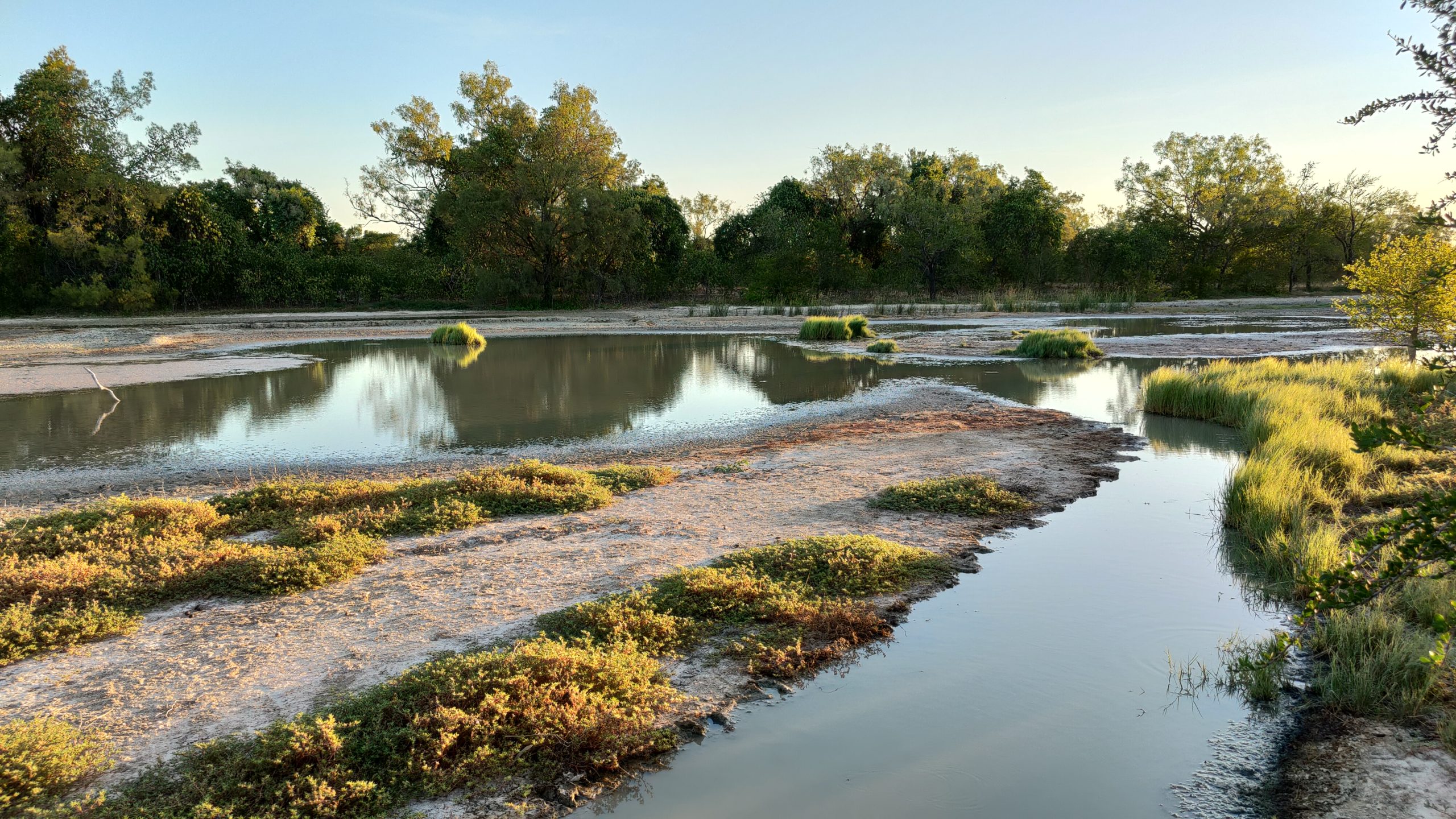
Earth Watch Training: Salt Marsh & Mangrove Threats
The Rangers were involved in 3 days of mangrove/saltmarsh land and sea surveys to assess various habitat types at each location, with Jock delivering specialised training in identification of threats. Selected ‘transect’ sites of mangroves and salt marsh habitats involved gathering essential data and collecting marine debris (fugitive plastics), which would be sorted back at the Rangers’ bases. Using these fugitive material samples, Louise conducted a Materials (Mod. 2) workshop for Rangers to learn about plastic types and material science.
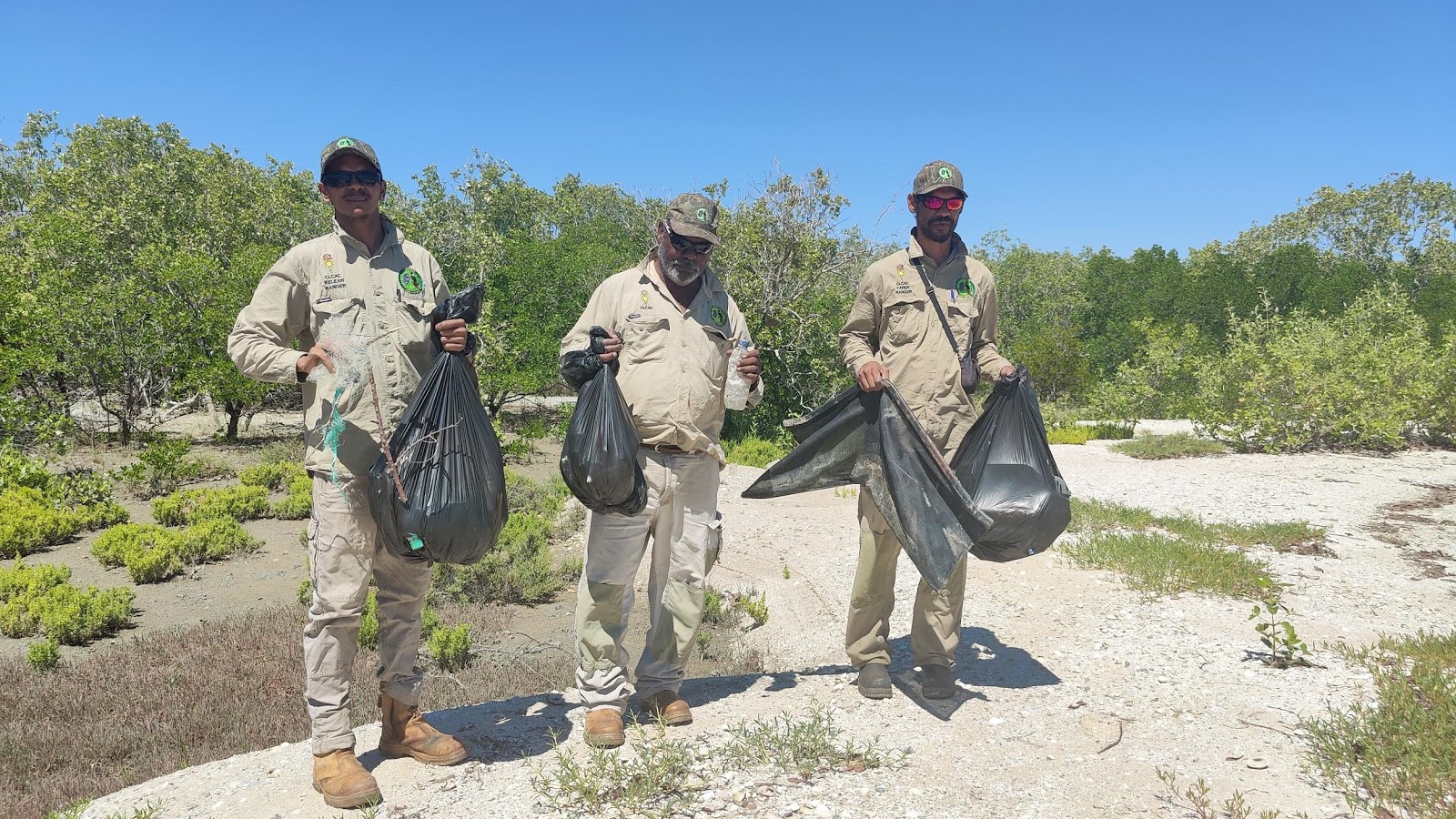
River and beach marine litter transects, Norman River, Gulf of Carpentaria. (L-R) Normanton Rangers Kelean Logan, Lawrence George, and Linton George
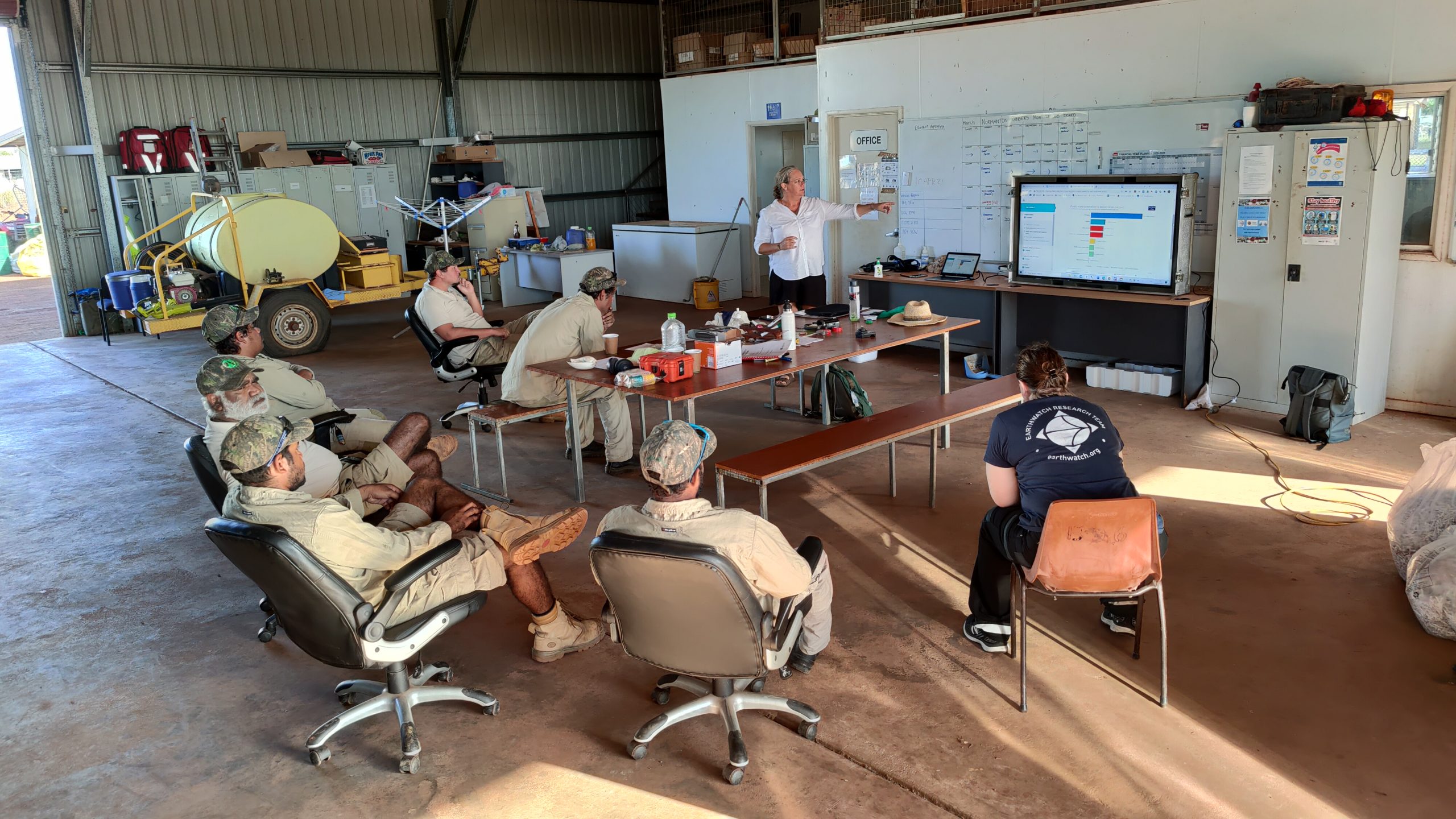
Training in Plastic Problem & Global issues, Normanton
In addition to the fugitive (marine debris) collections from the transects, Rangers also assisted in the collection of Kerbside materials in and around the local township sites, including assessing Council Landfills and meeting with Containers for Change operators.
Hands-on training in the identifying of fugitive (environmental) and Kerbside materials was conducted, which provides the Rangers with the knowledge to continue their collections and capture essential data in preparation for the installing recovery and recycling equipment which will turn waste into saleable resources.
Dividing the materials into different categories allowed the Rangers to learn about the material science of Polymers, including Ghost Gear, hard plastics, soft plastics and thermoset plastics.
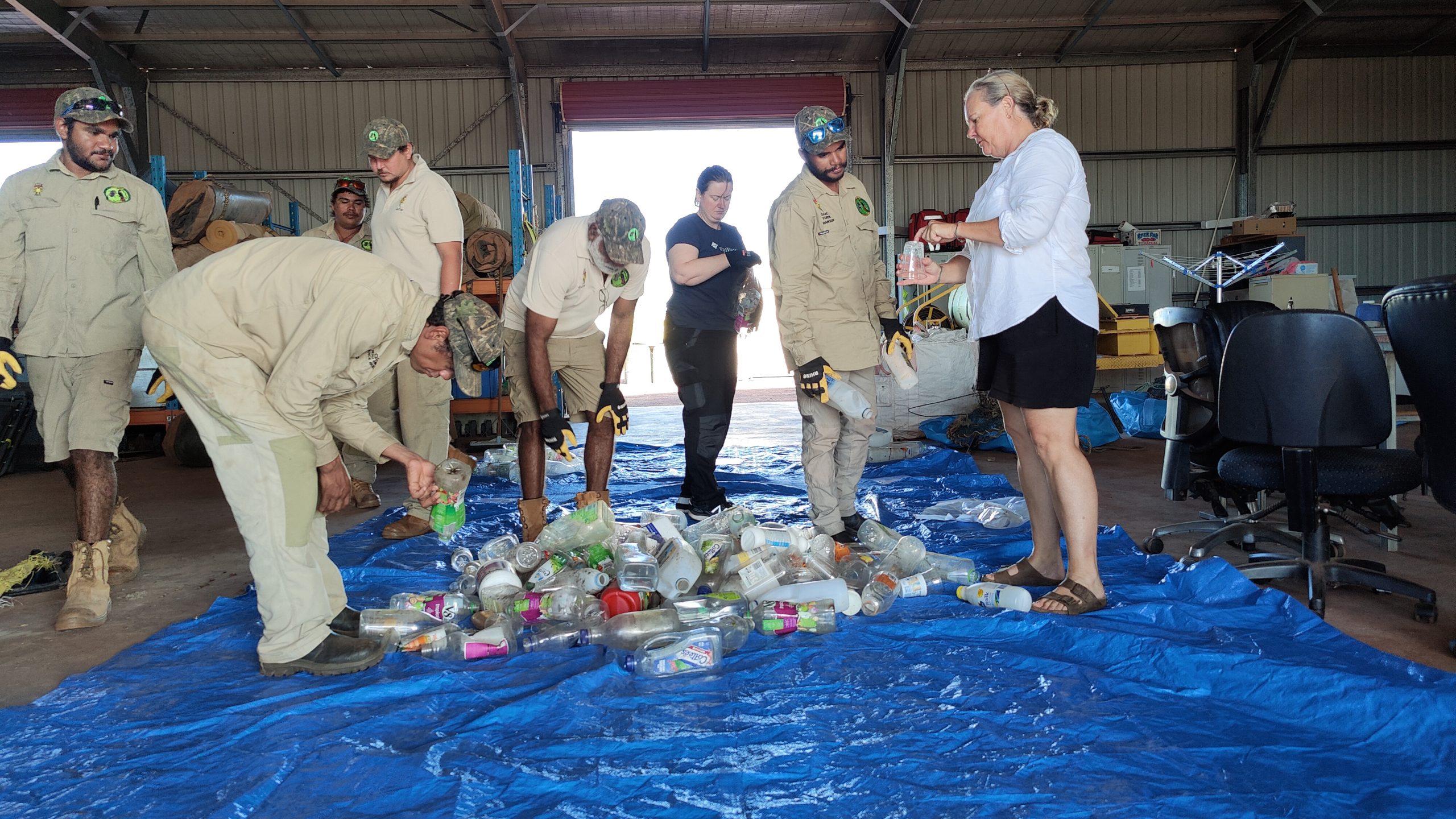
Normanton Rangers sorting of Kerbside materials. (L-R) Makiya Logan, Kelean Logan, Juwan Fraser, Hayden Tyrrell, Paul Logan, Fiona Sutton (Earthwatch), Raymond Dalton, Louise Hardman (Plastic Collective)
PLASTIC RECOVERY & RECYCLING PROGRAM – Next Steps
We designed an R&R program that the PC will prepare and install over the next three months from the materials assessment of kerbside and fugitive collection channels. Establishing Plastic Resource Recovery & Recycling Stations at Burketown and Normanton will maximise the recovery of plastic kerbside and fugitive materials, and reduce the damaging effect of plastics leaking into the environment and ending in landfill.
The PC System will include hardware, software and additional training programs. As part of the PC System, we aim to ensure the CLCAC Rangers program aligns with the Plastic Waste Reduction Standard and its social and environmental compliance procedures. Turning a problem into a solution will enable the communities to generate income, support other communities in the recovery of waste materials.
Additional Challenges
The Wetlands not Wastelands project aimed to identify issues in the Southern Gulf region around waste plastic impacts, which we discovered additional problems that also need to be addressed. For the fugitive plastics, ‘Ghost Gear’ was also identified as a significant problem in the entire Gulf region. Kerbside materials that ended up in local landfill sites were seen by all locals as a significant problem, particularly in the wet season when the flooded downs cause high levels of plastic leakage from these sites.
‘Ghost Gear ‘is the general term for Abandoned fishing nets, ropes, lines and other discarded materials, which do extreme damage to wildlife and habitats. Josh Mackenzie, through Mangrove Watch, has researched the entire coastline of the Gulf of Carpentaria in increments of 100m. By doing this, they have been able to identify over 700+ ghostnets along the coastline that are currently still caught in the tidal zone.
CLCAC and other Aboriginal communities around the Gulf have extensive experience with Ghost Nets and abandoned fishing gear. Ghost nets and ropes can be hard to identify, as without labels and identification tools, the exact composition is challenging to determine, which makes it challenging to recycle them. PC is now investigating solutions with partners to address the identification of resin types and potential collaboration to recycle discarded materials in preference to burning them onsite.
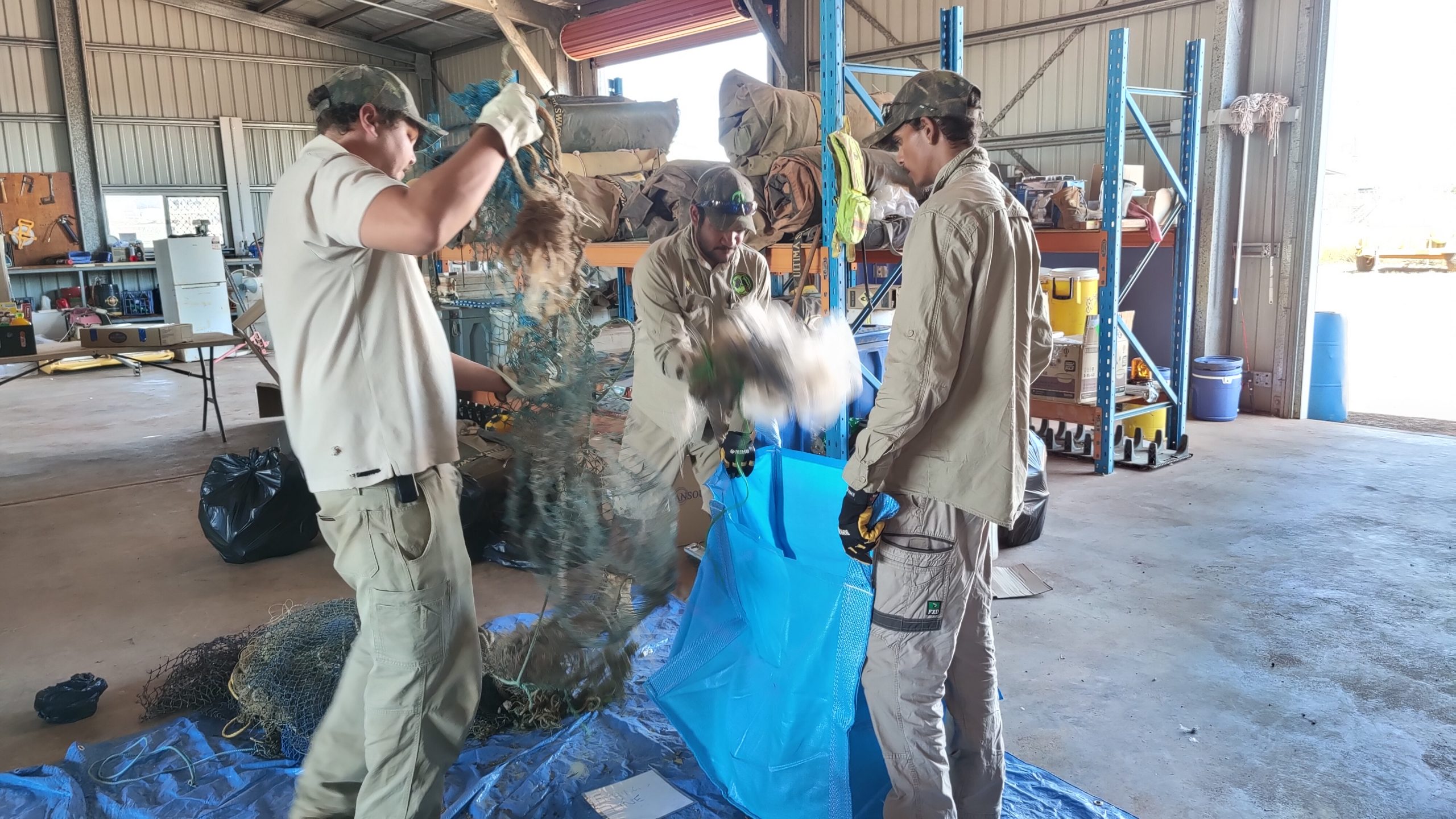
Sorting Ghost Gear (Nets, rope and line) at Normanton. (L-R) Hayden Tyrrell, Raymond Dalton, Kelean Logan
Landfills
An additional problem identified at all sites were the landfills. The Rangers, Council and locals alike are seeking solutions to reduce waste and remediate their landfill sites. Often materials are burnt on-site to reduce the volume of waste, animal’s forage on food wrapped in plastics, and annual floods in the delta regions cause significant leakage of plastics into the environment, as the Gulf is a large natural floodplain with few hills.
PC has set a task to reduce and eliminate landfill sites, replacing them with Resource Recovery enterprises, as all the materials sent to a landfill, if separated into its groups – biological and technical nutrients, can be safely and economically recovered for the benefit of the community, country and sea.


Small remote communities typically are left to themselves to deal with their local landfills, 1. Burketown Landfill is affected by annual wet season floods, 2. Doomadgee landfill is located close to the small township causing air pollution, water and soil pollution.
Stay tuned to watch our progress in one of the most beautiful and naturally abundant regions in Australia – the Southern Gulf!
